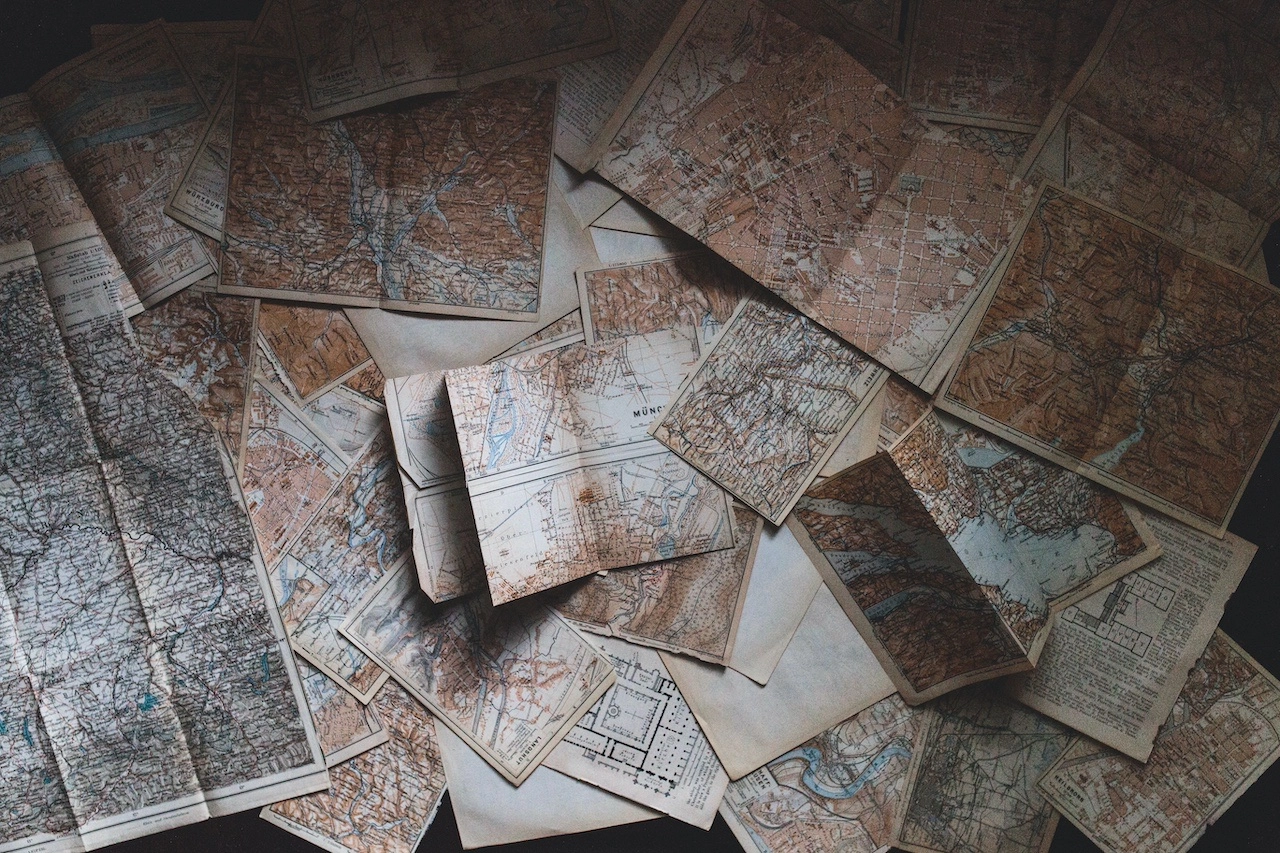
Join us for an exclusive behind-the-scenes journey into the world of cartographic design, where every stroke of the pen and choice of color contribute to the creation of visual masterpieces. In this post, we pull back the curtain to reveal the meticulous and creative process that goes into crafting historical maps.
Conceptualization and Research
The journey begins with the spark of an idea. Whether it's a custom project for an author or an exploration of ancient civilizations, every map starts with a concept. This initial spark is fueled by extensive research, delving into historical records, archeological findings, and scriptural references to ensure accuracy and authenticity.
Sketching the Vision
With a concept in hand, the creative process moves to sketching. This stage is where ideas take form on paper. Initial sketches capture the essence of the map, outlining key features, and establishing the layout. It's a phase of exploration and experimentation, allowing for the organic development of the map's visual narrative.
Digital Rendering and Detailing
From paper to pixels, the sketch evolves into a digital rendering. Using specialized software, the details of the map are refined, and historical accuracy is meticulously observed. Every city, river, and mountain is placed with precision, guided by the research conducted in the early stages.
Color Palette and Symbolism
The choice of colors and symbols carries profound meaning in cartographic design. The color palette is carefully selected to evoke the mood and historical context of the map. Symbols are chosen not just for their aesthetic appeal but for their ability to convey historical and cultural significance, adding layers of depth to the visual storytelling.
Iterative Refinement
The creative process is iterative, with continuous refinement based on feedback and a commitment to achieving perfection. Maps undergo multiple revisions, ensuring that every detail aligns with the project's goals and the historical period being depicted.
Final Touches and Presentation
The journey concludes with the application of final touches. Typography, labels, and additional elements are added to enhance the map's accessibility and aesthetic appeal. The finished product is then presented, ready to transport viewers through time and immerse them in the historical narratives it encapsulates.
The creative process of cartographic design is a delicate dance between artistry and accuracy. Join us in appreciating the dedication, research, and creativity that go into each map. As we pull back the curtain, we invite you to see not just the maps but the stories, passion, and craftsmanship that bring them to life.
Related Posts
From Parchment to Pixels: The Evolution of Historical Mapping Techniques
Embark on a captivating journey through time as we trace the evolution of histor...
Read More
The Fusion of Art and History: Creating Timeless Cartographic Masterpieces
Embark on a journey where artistry and history intertwine, giving rise to cartog...
Read More
Interactive Learning: The Impact of Historical Maps in the Classroom
Step into a dynamic classroom experience where the past comes to life through th...
Read More
Lost Cities and Forgotten Lands: Rediscovering History Through Cartography
Embark on a captivating exploration as we delve into the world of cartography, w...
Read More



